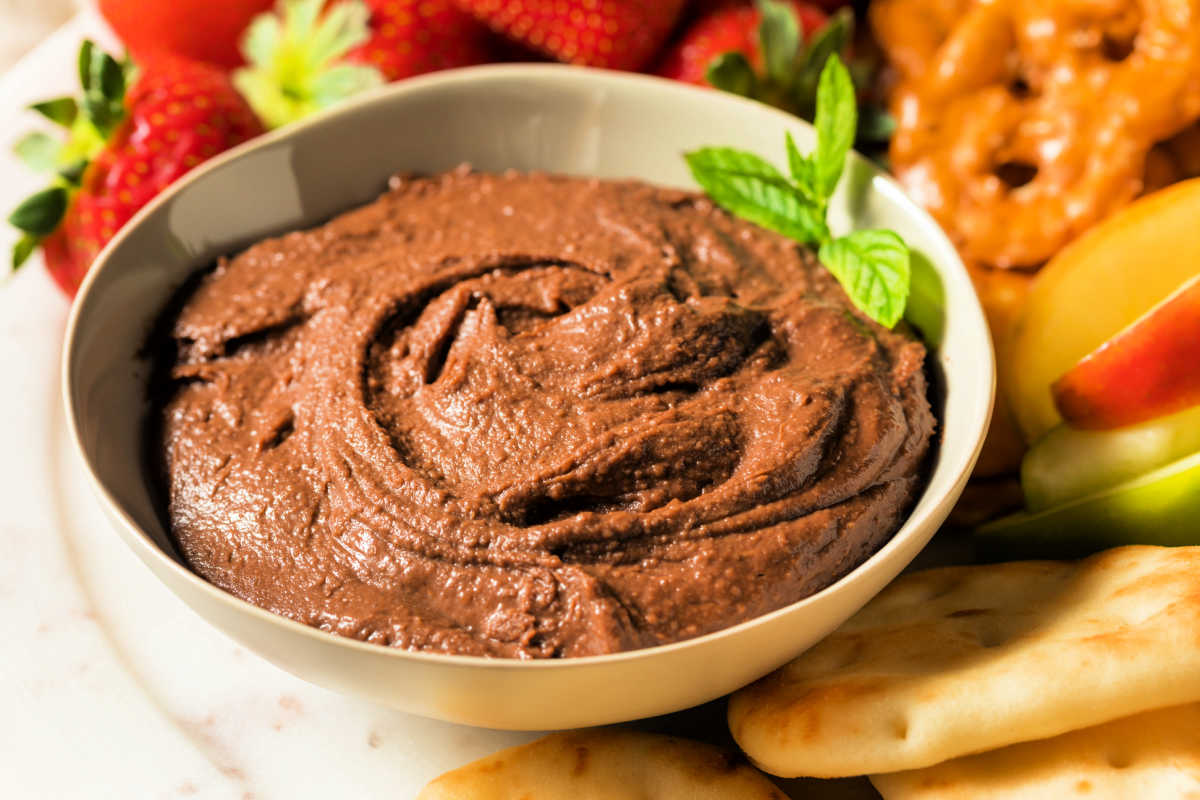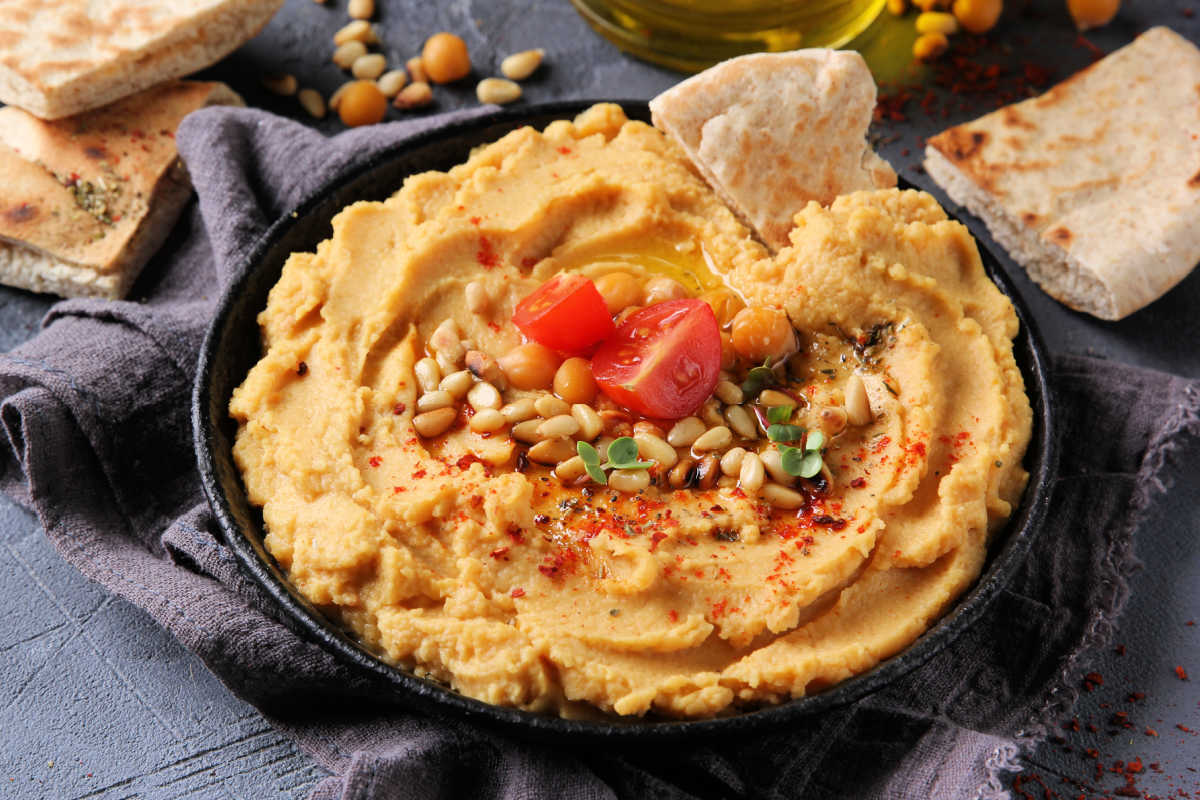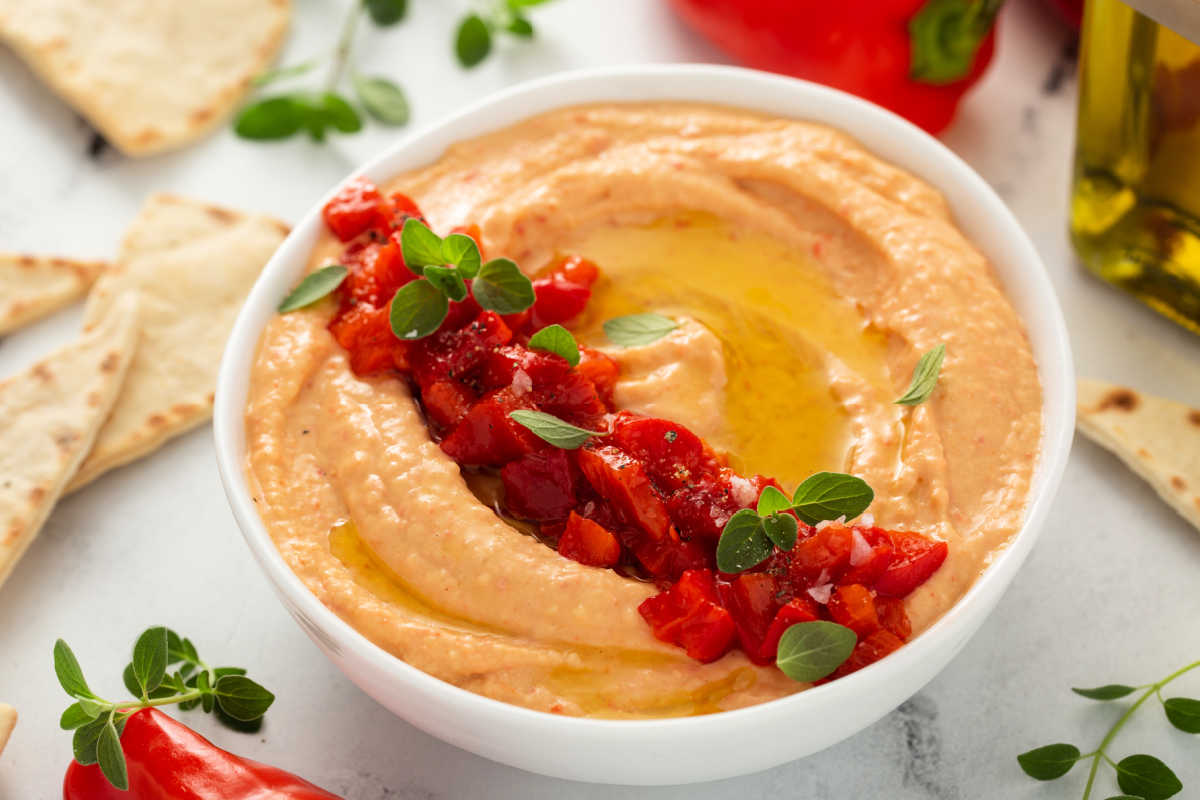Hummus is made from a base of chickpeas. Garlic, lemon, and tahini are common ingredients in most recipes, though flavors and recipes may call for other ingredients. The food is considered a reasonably healthy treat for humans. After all, it is a good source of dietary fiber and contains manganese and vitamin B6.
The majority of us are encouraged to eat more legumes, and chickpeas are a healthy variety of this food category. Although hummus may be beneficial for owners, it is not regarded as a healthy treat for dogs. While your dog may be fine if he consumes a small amount of this dish, it should be avoided because some of the ingredients are toxic to dogs.
What happens if a dog eats hummus?
There is a chance of illness if your dog does manage to eat hummus that contains toxic ingredients like garlic. However, hummus’ problematic components would need to be consumed in large quantities for them to be harmful to dogs.
Is there a precise dosage of hummus that canine consumption?
No, but remember that some canines might be more sensitive than others. For this reason, whenever someone asks me if small dogs can eat hummus, I always say no and never allow them to.
Keep an eye on your dog in case they unintentionally ate a lot of hummus. After consuming hummus, symptoms such as blatant abdominal pain, diarrhea, drooling, vomiting, and fatigue may indicate illness or a toxic reaction.
The bottom line is that you can feed your dog a variety of other foods; simply omit the hummus and you won’t have to worry about the risks.
The ingredients in hummus are the main factor in why it might be harmful to dogs.
A savory dish, dip, or spread known as hummus is widely consumed in Middle Eastern cuisine. It is made with mashed, cooked chickpeas, tahini, garlic, and lemon juice. Some recipes may even add other custom ingredients.
Although hummus is a great source of protein, dietary fiber, vitamin B6, and manganese, the main ingredients can be harmful to dogs. For instance, hummus frequently contains garlic, which is among the most toxic food types for dogs.
So, how can hummus be bad for dogs if it is so healthy and nourishing for humans? To clarify, let’s take a closer look at the individual ingredients.
One of the main components of hummus and a member of the legume family are chickpeas, which are packed with nutrients. We can eat them in a variety of ways in addition to using them as an ingredient in hummus. They can be consumed on their own or added to salads, soups, and stews. Not only are they good for us, but they can also be good for your dog.
As a whole, chickpeas offer many benefits. They are an abundant source of fiber, so your dog will feel fuller for longer by eating them.
In the long run, this can help with weight control. Additionally, they contain a lot of protein and provide additional nutrients like potassium, magnesium, and folate. These nutrients are essential for cell recovery and good health.
Chickpeas also offer extra benefits to your dog. Thanks to Vitamin A, they support eye health. Vitamins B and C strengthen your dog’s immune system. They also help to regulate blood sugar.
Chickpeas appear to be a healthy treat for your dog when eaten alone. They can be served whole or blended, with other vegetables and animal protein, or by themselves.
If you are only giving your dog chickpeas, as long as they are cooked and don’t contain seasoning, onion, or garlic, you shouldn’t be concerned.
A condiment known as tahini is made from ground, toasted sesame seeds. It can be a dip or an ingredient in a variety of other dishes.
Tahini is not toxic to dogs, so they can eat it despite it being a delectable snack for humans.
Tahini, in moderation, can even be healthy for dogs. It offers a sufficient amount of protein and good fats. It is a source of phosphorus, zinc, potassium, manganese, and calcium.
These all promote better health in dogs.
Additionally, it has sesamin and sesamolin, which lower blood pressure and cholesterol. Tahini thus offers a number of nutrients that can be advantageous for dogs.
Tahini may be difficult for your dog to digest in large quantities, though. This is due to the fact that dogs, which are primarily carnivores, have trouble digesting seeds.
Lemon juice (can be harmful)
Vitamin C, which is abundant in lemons and is essential to the health of our immune system Additionally, lemon juice contains other nutrients that are good for human health. Health experts even recommend lemon juice to aid in weight loss, support heart health, lower the risk of cancer, and enhance digestive health.
Because of its distinct sour flavor, lemon juice is a staple in a variety of popular snacks and beverages. These include lemonade and lemon meringue pie. Who could forget the lemonade you always made when they were young?
Lemon juice may be beneficial for humans, but it should never be given to dogs. Although it is harmless to your dog, it provides very few nutritional advantages. Although the psoralen compounds and aromatic oils in lemons are poisonous to dogs and frequently cause stomach upset, the lemons themselves can be toxic.
For instance, lemon juice’s high acidity can result in nausea, vomiting, weakness, and diarrhea. It can also disrupt your dog’s acid base balance.
Lemon juice may contain some beneficial phytonutrients, but it is difficult to deliver them without sugar or dilution. This causes other health problems. Thus, any potential benefits are outweighed by the negative effects.
And finally, the main component of hummus that may be harmful for dogs to consume
The allium family includes garlic, which is closely related to the onion, shallot, and leek. We have used garlic for centuries as a food flavoring and traditional medicine. It is a popular food.
Despite the fact that garlic is a favorite of humans, dogs should never be given garlic.
This is because, as was previously mentioned, dogs metabolize some foods differently from humans. One of these elements which dogs metabolize differently is thiosulfate. It is present in every member of the allium family and is poisonous to dogs.
Thiosulfate causes damage to red blood cells in dogs. This results in hemolytic anemia. Symptoms of hemolytic anemia include:
In addition to these symptoms, garlic toxicity can also result in depression, dehydration, nausea, and diarrhea. According to studies, it takes between 15 and 30 grams per kilogram of body weight for a dog’s health to be negatively impacted.
In contrast, the typical garlic clove weighs between 3 and 7 grams. Considering this, it would take a lot of garlic for your dog to become seriously ill.
Remember that this is just a general guideline and that some dogs are more sensitive to toxicity than others.
Thus, garlic can seriously harm your dog’s health. This is why you shouldn’t feed hummus to your dog, though I don’t think they would need to consume much of it to become ill.
Hummus For Dogs – Different Flavors
Let’s examine the most popular hummus varieties now and determine whether they are risky or safe for dogs to eat.
Dogs can consume small amounts of classic hummus as long as it is low in salt and contains little to no garlic.
It is safe to give your dog homemade hummus if you use healthy ingredients and avoid adding extra salt, garlic, or lemon juice.
Do not give your dog chocolate hummus. Keep all types of chocolate away from dogs even though a spoonful of it might not hurt your dog.

No, dogs should not eat garlic hummus. Dogs should not consume garlic or any other allium family members.
There are usually onions and garlic in green hummus. These are not safe for dogs to eat. The remaining ingredients, spinach and cilantro, are suitable for canines to consume. If you prepare this at home, just omit the garlic and onions, and your dog can eat it without getting sick.
Dogs can consume very small amounts of olive hummus without any problems. If you prepare it at home without the salt and garlic, it will be even more beneficial for them. Read more about dogs and olives.
Pine nuts are safe for your dog to eat. They can eat pine nut hummus as long as there isn’t too much salt or garlic in it.
Learn about the various nuts you can give your dog by reading this article on nuts dogs can eat.

Yes, dogs can eat pumpkin hummus in small amounts. Pumpkin is a safe ingredient to share with your dog. In fact, you can prepare delicious homemade pumpkin dog treats for your pet.
No, dogs should not eat red pepper hummus. Typically, it contains too much salt and garlic to be a suitable snack for your dog.

Since nuts and oils are used in the majority of hummus varieties, they are naturally vegan. Giving your dog small amounts of vegan hummus that doesn’t have a lot of salt, any garlic, or onions is safe.
Before giving your dog Sabra hummus, read the ingredients label. Never feed your pet anything that contains a lot of salt, garlic, or onions.
FAQ
What happens if your dog eats hummus?
Lemon juice, garlic, and salt are additional issues with hummus because they are poisonous to dogs and can cause everything from gastrointestinal irritation to dehydration to poisoning.
How much hummus is too much for a dog?
Only permit your dog to consume a small amount of hummus at a time. Dogs can consume the main ingredient without any problems, but the additional ingredients are not. It’s best to refrain from giving them any hummus, even if it’s just one tiny teaspoon as a treat.
Is garlic hummus OK for dogs?
Dogs can probably eat a small amount of plain hummus without any problems. However, hummus that contains lemon and garlic should be avoided. Since most hummus recipes contain garlic, which is toxic to dogs, it is not advised for dogs to eat them.
What happens if dogs eat chickpeas?
CAN CHICKPEAS BE BAD FOR DOGS? If dogs consume too many chickpeas, they may cause harm. Because chickpeas are so high in fiber, eating too many of them can upset your dog’s stomach and cause excessive flatulence, loose stools, and possibly diarrhoea.